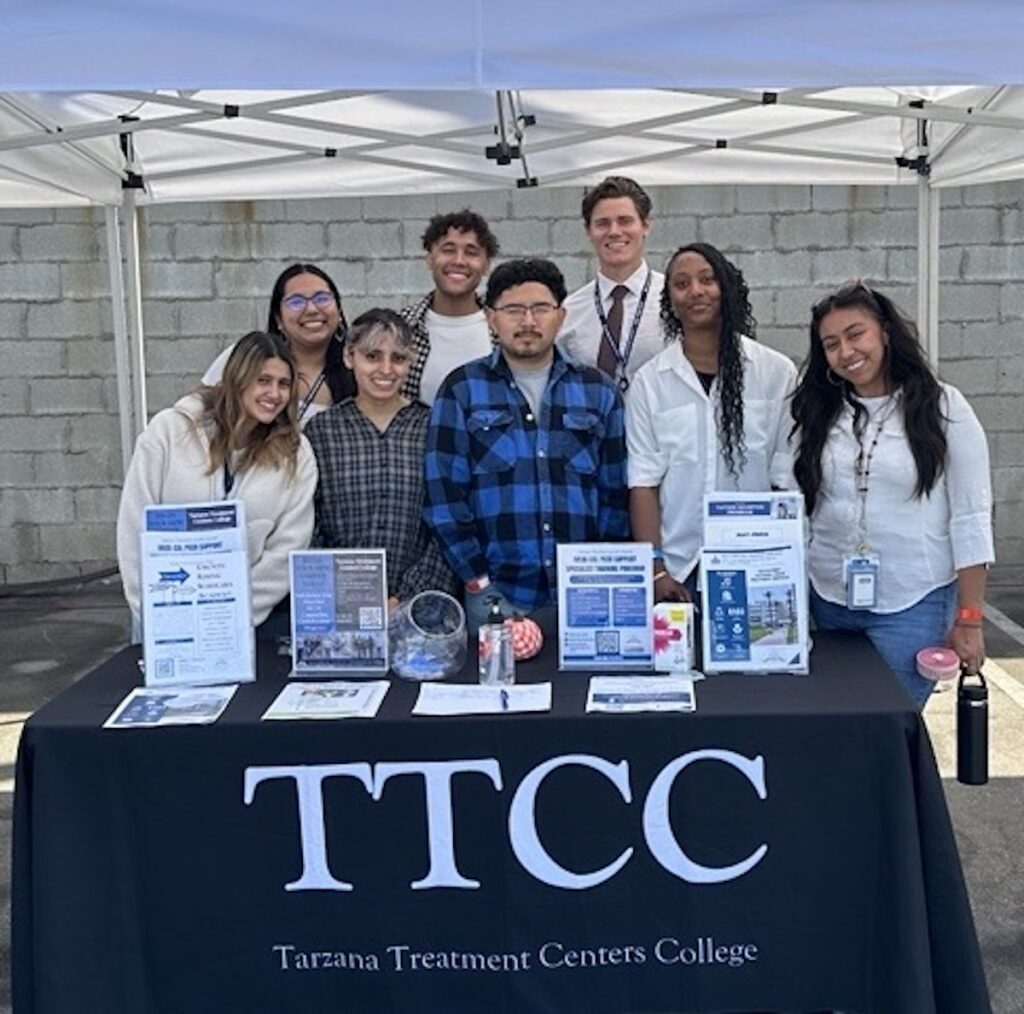At Tarzana Treatment Centers College (TTCC), innovating workforce education is a core principle of our program. Hence, the college’s commitment to progressive education is the foundation for cultivating the next generation of healthcare professionals.
In the 25th year of the new millennium, workforce education is a key to positive self-improvement. First, it helps people develop their educational opportunities. Second, through such expansion, they can improve their earning power and better their lives.

From over fifty years of hands-on experience, Tarzana Treatment Centers (TTC) knows the value of substance use disorder (SUD) treatment. Indeed, SUD treatment is a vital component of behavioral healthcare. In treatment settings, workforce education is crucial for improving patient outcomes.
For example, SUD practicum experiences help bridge the gap between academic knowledge and real-world application. At the same time, such workforce education helps treatment professionals provide a higher quality of care.
Workforce Education and SUD Practicum Experience
At TTCC, our commitment to progressive education is the foundation for the next generation of healthcare professionals. Here are strategies that help make this happen.
1. Standardized Curriculum
Adopting a standardized approach to learning allows students to develop active listening and crisis management skills within a structured environment. Thus, such workforce education approaches enhance resilience and increase confidence. At TTCC, the curriculum challenges our students to succeed.
2. Interdisciplinary Learning Communities
Collaboration among students from various disciplines, including mental health and social work, is key to workforce education. Hence, such collaboration cultivates a comprehensive understanding of SUD treatment. Moreover, it enhances teamwork, providing students with diverse and interdisciplinary experiences in addiction counseling.
3. Peer Mentoring and Supervision
Peer mentoring and supervision provide essential emotional support. As a necessary aspect of workforce education, it fosters community through shared experiences and reflective learning. Thus, individuals who have successfully navigated their recovery journeys offer guidance, support, and encouragement in their support roles.
Workforce Education, the Community, and Trauma-Informed Care
4. Community-Based Learning
By engaging directly with community organizations, students gain an understanding of the challenges faced by marginalized populations. Additionally, such engagement fosters cultural humility. They strengthen the recovery community by building a strong and enduring support network. Such interaction offers valuable insights while reminding patients in recovery settings that they are not alone.
5. Trauma-informed and Culturally Sensitive Approaches
Training in trauma-informed care and cultural competence is key to workforce education in healthcare settings. Moreover, such training fosters compassionate interactions with individuals facing substance use disorders (SUD). Indeed, many individuals have experienced trauma throughout their lives. Therefore, practicum experiences in SUD should be based on a deep understanding of trauma and its effects. Students also focus on empowerment by enhancing patients’ self-worth through such sensitivity.
6. Virtual and Hybrid Practicum Models
Tarzana Treatment Centers College is at the forefront of educational innovation. Indeed, innovation is a key to workforce education. By harnessing the latest digital technologies to provide a wide array of virtual and hybrid learning models, this approach enhances accessibility. It also opens the door to a rich spectrum of diverse educational opportunities.
The Visionary Future of Workforce Education
At TTCC, health educators and leadership adopt a visionary perspective, designing programs that prepare our learners to be trailblazers in tackling modern healthcare challenges. The aim is to allow comprehensive training to empower students to drive impactful changes within the workforce.
Ultimately, such training fosters a dynamic environment where innovation meets real-world solutions. Such a commitment to excellence is the workforce education requirement. By tackling challenges with patients first-hand, students learn in a real-world setting.


